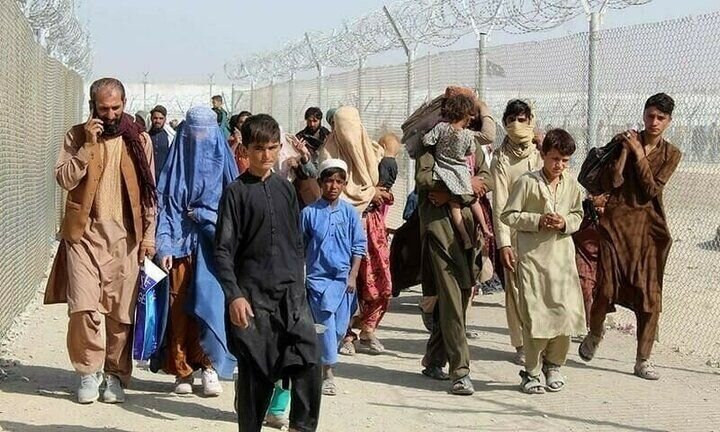Organization for immigrant and refugee rights to take shape

TEHRAN – The establishment of a national organization responsible for protecting the rights of immigrants and refugees is in the final stages, the deputy chairman of the Majlis National Security and Foreign Policy Committee has said.
The organization will utilize a precise and managed approach to organize foreign nationals, deal with undocumented migrants, and maintain the security and peace of the country, Mehr news agency quoted Ebrahim Azizi as saying.
Deportation of undocumented nationals is the right of the people, and we must stand firm against illegal immigration to the country, the official stated.
The entry of immigrants without observing requirements for legal entry is against the national interests and security of the country, and all institutions are responsible in this regard.
Projects to be implemented
The National Organization for Migration is planning to implement an inclusive plan encompassing 40 projects to organize foreign nationals and refugees.
The projects include locating and returning unauthorized nationals; blocking borders; reforming passport issuance; intensifying deterrent fines; and seeking guarantees by employers, IRNA quoted Abdollah Mobini, the head of the National Organization for Migration, as saying.
Currently, the inclusive plan is being conducted in two provinces to identify the probable problems and the ways to deal with them.
Organizing nationals in other areas is also on the agenda.
The initiative to secure borders started in the Iranian calendar year 1379 (March 1990 - March 1991), with the aim of intensifying the security of borders in eastern regions of the country. It has been implemented in parts of the Iran-Afghanistan border in Sistan-Baluchestan province.
It was initially planned to be completed in the Iranian year 1399 (March 2020 – March 2021), but it was postponed due to inadequate funds. Now it is expected to be finished within the next two years.
The project is designed not only to fortify the border physically but also to incorporate cutting-edge technology to monitor and manage border security effectively.
This dual approach aims to create a robust defense system that can respond to various threats and challenges.
On August 14, Ahmad-Ali Goudarzi, Commander of the Border Police, announced that a new project for closing southeastern borders is scheduled to begin in the second half of the current Iranian year that ends in March 2025.
“Weekly meetings are being held, and needed funds are allocated to border police and other relevant officials. Initial steps such as signing contracts have been taken, and preparations are being made for the construction of watchtowers and stations, as well as purchasing sensors, cameras, and advanced weapons,” ISNA quoted Goudarzi as saying.
No permission to stay
In October 2023, Interior Minister Ahmad Vahidi said unauthorized foreigners have no permission to stay in the country and receive services, IRIB reported.
Paying a visit to a center for organizing immigrants in the city of Karaj, he added illegal foreign nationals would be identified and sent to specific camps and then returned to their homeland.
In November 2023, Mobini, said, “Iran has no longer the capacity to accept new immigrants, and if the international community does not bear the responsibility for supporting refugees in Iran, most of them will migrate to European countries.”
The Islamic Republic of Iran is currently host to one of the largest and most protracted refugee populations in the world, the majority of whom are Afghan refugees.
The country is home to over 800,000 registered refugees and some 2.6 million undocumented Afghans. Today, more than 500,000 Afghan children - including undocumented Afghans and those who have newly arrived in Iran following the Taliban takeover - are benefitting from Iran’s inclusive education policies, one of the most progressive in the world.
MT/MG
